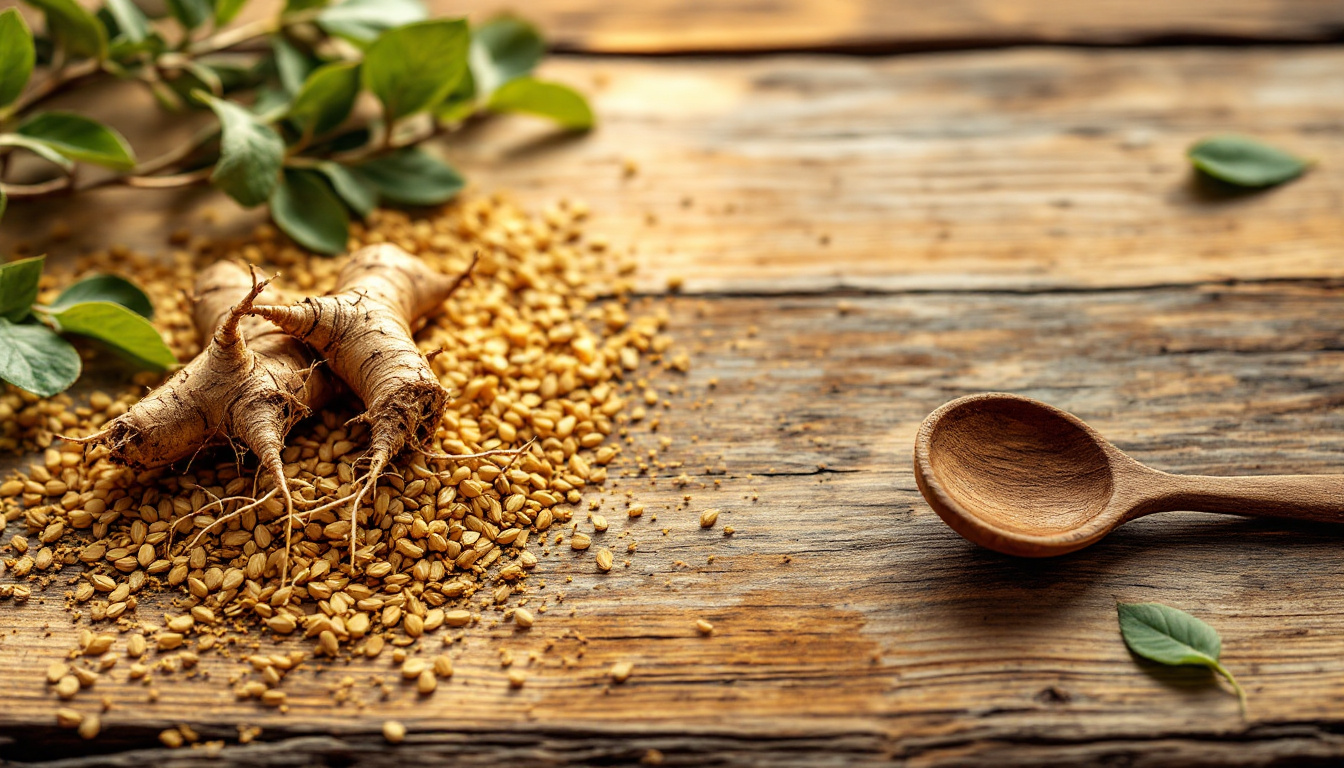When it comes to natural supplements, ashwagandha has gained significant attention, particularly regarding its potential effects on testosterone levels. This ancient herb, often referred to as an adaptogen, is celebrated for its ability to help the body manage stress. But does it really have a direct impact on testosterone? Let’s delve into the facts and myths surrounding this intriguing topic.
Understanding Ashwagandha
Ashwagandha, scientifically known as Withania somnifera, has been used for centuries in Ayurvedic medicine. Its roots and berries are known for their medicinal properties, and it is often consumed in powder form or as a supplement. But what exactly makes ashwagandha so special?
What is an Adaptogen?
Adaptogens are natural substances that help the body adapt to stress and promote mental balance. Ashwagandha is one of the most researched adaptogens, with studies suggesting it may help reduce cortisol levels, the hormone associated with stress. Lowering cortisol could potentially create a more favorable environment for testosterone production.
Historical Use in Traditional Medicine
In traditional Ayurvedic practices, ashwagandha has been used to enhance vitality and improve overall health. It is often recommended for individuals experiencing fatigue or low energy, which can indirectly affect testosterone levels. The historical context provides a foundation for its modern-day applications.
The Science Behind Testosterone and Ashwagandha
Testosterone is a crucial hormone in both men and women, playing a vital role in various bodily functions, including muscle mass, energy levels, and libido. Understanding the relationship between ashwagandha and testosterone requires a look at recent scientific studies.
Research Findings
Several studies have explored the effects of ashwagandha on testosterone levels. One notable study found that men who took ashwagandha supplements experienced a significant increase in testosterone levels compared to those who received a placebo. This suggests that ashwagandha may indeed have a positive effect on testosterone production.
Mechanisms of Action
How does ashwagandha potentially influence testosterone levels? Researchers believe that its ability to lower cortisol may play a key role. High cortisol levels can inhibit testosterone production, so by reducing stress and cortisol, ashwagandha may help create a more conducive environment for testosterone synthesis.
Common Myths About Ashwagandha and Testosterone
With the rise in popularity of ashwagandha, several myths have emerged. It’s essential to separate fact from fiction to make informed decisions about its use.

Myth 1: Ashwagandha is a Testosterone Booster
While some studies indicate that ashwagandha may help increase testosterone levels, it is not a direct testosterone booster. Instead, it may support overall hormonal balance and health, which can lead to improved testosterone levels in some individuals.
Myth 2: All Ashwagandha Supplements are the Same
Not all ashwagandha supplements are created equal. The quality, concentration, and form of ashwagandha can vary significantly between products. It’s crucial to choose high-quality supplements that contain standardized extracts to ensure efficacy.
How to Incorporate Ashwagandha into Your Routine
If you’re considering adding ashwagandha to your wellness regimen, here are some practical tips to get started.
Choosing the Right Form
Ashwagandha is available in various forms, including powders, capsules, and tinctures. Powders can be mixed into smoothies or warm beverages, while capsules offer a convenient option for on-the-go supplementation. Choose the form that best fits your lifestyle.
Recommended Dosage
While there is no one-size-fits-all dosage, many studies have used doses ranging from 300 mg to 600 mg of standardized ashwagandha extract per day. It’s advisable to start with a lower dose and gradually increase it, monitoring how your body responds.
Potential Side Effects and Considerations
As with any supplement, it’s essential to be aware of potential side effects. While ashwagandha is generally considered safe for most people, some may experience mild gastrointestinal discomfort or drowsiness.
Consulting with a Healthcare Professional
Before starting any new supplement, especially if you have underlying health conditions or are taking medications, it’s wise to consult with a healthcare professional. They can provide personalized advice and ensure that ashwagandha is a suitable option for you.
Conclusion
In summary, ashwagandha shows promise in supporting testosterone levels, primarily through its stress-reducing properties. While it may not be a miracle solution for boosting testosterone, it could play a beneficial role in a holistic approach to health and wellness. As always, individual results may vary, and it’s essential to consider lifestyle factors such as diet, exercise, and stress management alongside supplementation.
As research continues to unfold, ashwagandha remains a fascinating subject in the realm of natural health. Whether you’re looking to enhance your vitality or simply explore the benefits of adaptogens, ashwagandha could be a valuable addition to your wellness toolkit.




